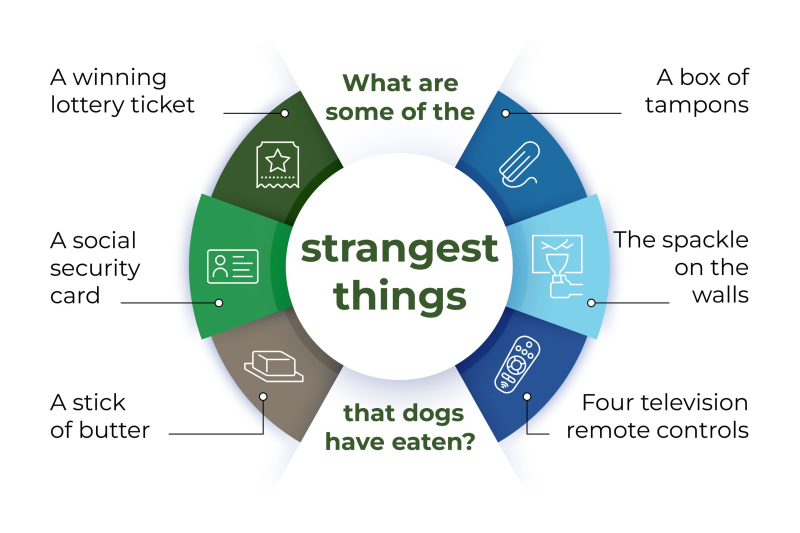
Americans Reveal the Weirdest Things Their Dogs Have Eaten
Thousands of Americans have come together to answer a burning question—What are the weirdest things your dogs have eaten?
Many dog owners will have stories of their pups eating their shoes, phones, garbage, or essentially anything they can get their teeth into. However, a survey commissioned by Darwin's Natural Pet Products and conducted by Talker Research between September 20-25, asking 2,000 dog owners for the strangest things their dogs have ingested, has revealed there are things much worse than a pair of bitten shoes.
One respondent revealed that their dog had got into the holiday spirit by eating a Christmas tree ornament, while one snapped up dentures—and one particularly devastating answer was the dog who pulled a "winning lottery ticket out of my purse and chewed on it."
That wasn't the only monetary loss. One owner recalled their dog chewing up money, another got into their owner's wallet and credit cards, while one pup had to be rushed to the emergency veterinarian after eating the tail from a fabric squirrel.
Barbie doll heads, a box of tampons, Vaseline and their owner's Social Security card also all made an appearance.

Among the weird answers, there were some concerning ones including a dog attempted to eat an entire stick of butter, another ate two trays of cookies and half a bag of flour, and one ate onions.
Some human food can be dangerous for dogs. The Kennel Club warns bread dough can bloat and cause stomach twists, while chocolate contains a chemical called theobromine, which is poisonous to dogs.
Onions and garlic also contain a substance that can cause life-threatening anemia in dogs, and any sweet or sugary things can lead to pancreatitis if eaten in large amounts, according to the Kennel Club.
The survey also found respondents had to stop their dog from eating something they shouldn't every three days, with this behavior peaking when the animal was 20 months old.
Seventy-seven percent of respondents worried about their dogs' health when they ate something they weren't supposed to, and 59 percent fear they don't always notice when it happens.
It also found that while 78 percent of owners are confident they know what a healthy diet for their dog should be, only 45 percent admitted feeding their dog a "very" healthy diet.

Over half would prefer to feed their dog a healthier diet, but 46 percent of people found healthier dog food options too expensive, and 32 percent described their dogs as picky eaters who didn't like other brands they had tried.
"A pet food ingredient list should read like a home-cooked recipe, not a chemistry equation," Gary Tashjian, founder and CEO of Darwin's Natural Pet Products, said. "Pet parents want their pups to be happy and healthy, and that starts with having confidence in (and being able to pronounce) everything that goes into the dog's food bowl."
He added: "If you're on a journey to improve your pet's nutrition, that's wonderful. It might not happen overnight, but you can help them benefit from healthier options by sticking to a consistent feeding schedule and limiting treats in between meals. Aim for the highest-quality ingredients you can afford, including real meat (not meat by-products) and a variety of vegetables."
Do you have funny and adorable videos or pictures of your pet you want to share? Send them to life@newsweek.com with some details about your best friend and they could appear in our Pet of the Week lineup.
